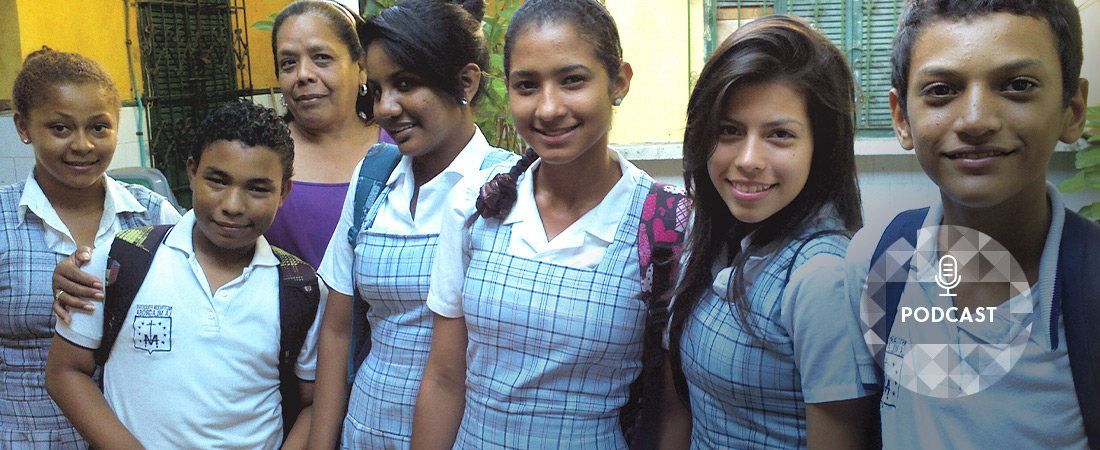Using Technology to Promote Language Learning

In Honduras, EDC is changing how English is taught as a second language.
Listen in as our experts discuss a wide range of current topics. Check out all of our podcasts.
Oral language development is key to learning any new language. But in Central and South America, where English is commonly taught as a second language, there are few tools to support students’ speaking skills.
EDC’s Kit Yasin is working to change that. As part of EDC’s English for Latin America (ELA) project, Yasin is collaborating with Skype to develop a new speech-recognition tool that helps students practice the English they are learning. In this podcast, she discusses the importance of speaking in language development, and she shares a clip of a Honduran student using the new program.
On the value of using a speech-recognition tool
Yasin: One of the greatest challenges that ministries are facing everywhere is how to assess speaking ability. Most countries are able to assess students using a paper and pencil test . . . but that really tells you nothing, because in the first year of language you should be focusing on speaking.
On how the new tool can help oral language development
Yasin: [Students] will only need to be connected long enough to take a test. So if schools can arrange it so that students are in a place with a teacher who has a smartphone, the teacher can call Skype, pass the phone around, and assess every child. Until now, we haven’t been able to find any test that tests speaking ability . . . so this could be quite groundbreaking as a tool, not just in Latin America, but it could be potentially delivered anywhere in the world.
On how technology can improve language programs
Yasin: One of the universal impediments to language acquisition is fear. And if you can use technology in the right way you can tackle that problem. . . . And if you can overcome that, you can really make progress. And what we’ve seen with ELA is that using interactive audio instruction, and using music, really helps people overcome that fear.